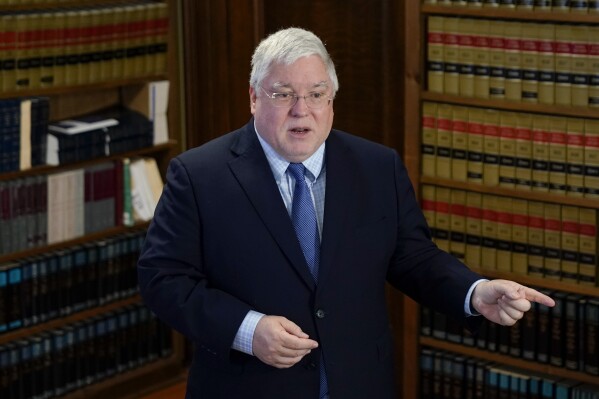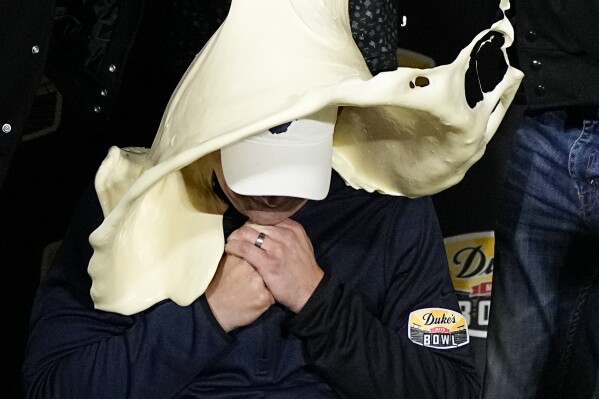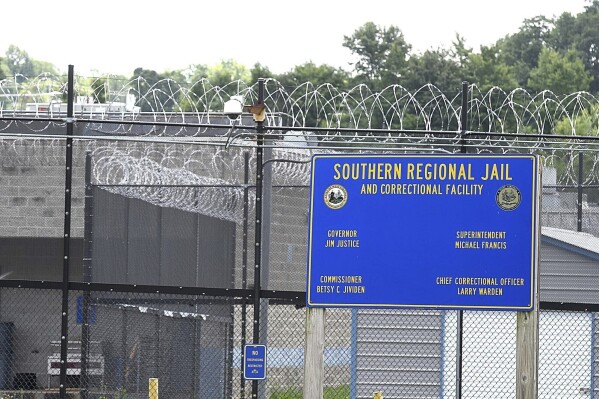Stiffer penalties for fentanyl dealers, teacher raises among West Virginia legislative priorities
CHARLESTON, W.Va. (AP) — Leading lawmakers in West Virginia want to increase penalties for fentanyl dealers, give public school teachers more pay raises, remove disruptive students from classrooms and boost funding for emergency responders.
State Senate President Craig Blair and House of Delegates Speaker Roger Hanshaw, both Republicans, and House Democratic leader Sean Hornbuckle gave a glimpse of their priorities Friday at an annual meeting with journalists sponsored by the West Virginia Press Association. The 60-day legislative session starts next week.
Hanshaw said lawmakers also want to closely watch how a new higher education funding formula pans out. The Legislature previously approved a mathematical formula rewarding schools for degree attainment, workforce outcomes and graduate wages.
“For far too long, funding to our higher education institutions was based in very large part on whether your school was represented on the House or Senate finance committees,” Hanshaw said. “That’s not a viable way to do business.”



In September, West Virginia University’s board made wide-ranging reductions to academic programs and faculty positions as it grappled with a $45 million budget shortfall that is projected to grow as high as $75 million in five years. The university in Morgantown has been weighed down financially by a 10% drop in enrollment since 2015, revenue lost during the pandemic and an increasing debt load for new building projects.
A month earlier, Gov. Jim Justice signed a bill that allocated $45 million for Marshall University in Huntington to open a new cybersecurity center. The governor later rejected suggestions that state money should have been used to help WVU in light of the state’s $1.8 billion surplus in the 2023 fiscal year that ended last June.
The new funding formula kicks in this year.
“We’re anxious to see how it works,” Hanshsaw said. “We’re anxious to see what tweaks we need to make to it.”
During last year’s legislative session, a bill to upgrade fentanyl distribution from a misdemeanor to a felony failed to pass. Blair and Hanshaw made it clear at the start of Friday’s meeting that they are determined to get something done. For years, West Virginia has had by far the highest rate of drug overdose deaths in the nation.
“Pushers of fentanyl are murderers,” Hanshaw said.
Pay raises suggested by the governor this year for public school teachers, school service personnel and other state employees would help offset rising health care costs and would follow a $2,300 increase for state employees in 2023, as well as cuts in the state income tax last year by an average of 21.25% across brackets.
“I personally am in favor of doing that again if our finances will allow us,” Blair said.
Last year, lawmakers passed a bill addressing unruly students who would serve either in-school or out-of-school suspensions depending on the number of incidents. Blair said further legislation could be considered this year to move such students to another classroom where there would be cameras and available specialists.
“Teachers are having a tough time in the classroom because of disruptive students,” Blair said. The bill would “allow those teachers to do their jobs without the disruption.”
Lawmakers also want to prioritize financial support for the state’s vast network of volunteer fire and emergency services departments. Justice signed legislation in August providing $12 million to those departments and said the state needed to find a permanent source for such funding.
Hanshaw agreed Friday that “it’s a priority for us.”
Justice also has said he wants lawmakers to revisit a new law allowing high school athletes to switch schools one time during their careers and be immediately eligible to compete. The bill became law last year without the Republican governor’s signature. Justice, who coaches a high school girls basketball team, became concerned after several high school football games involved lopsided scores to start the 2023 season.
While Hornbuckle welcomed a review of the law, he said “we cannot have a knee-jerk reaction. We have to find a middle ground. It’s a little more nuanced than you think. And we’ve got to take our time with this.”
West Virginia has one of the nation’s lowest workforce participation rates, and the top lawmakers addressed ways they could assist families with child care concerns.
After two years of receiving federal subsidies, 220,000 child care programs across the country were cut off from funding this past fall. Hanshaw said larger state employers last year were allowed to claim a credit for developing child care programs. Now, he wants to expand that opportunity to some smaller companies.
“The program that we enacted last year, as the data that we’ve been presented with tells us, is going extraordinarily well,” Hanshaw said.
Justice has made numerous job announcements in recent years, including on Monday with plans by LG Electronics to develop technologies in renewable energy, telehealth and other industries. Hornbuckle said bringing jobs to the state is great only if workers can find ways to look after their children.
“The No. 1 thing is child care,” Hornbuckle said. “We’ve got to make sure the people have the ability to go get these great jobs.”
Republicans hold supermajorities in the House and state Senate.
Disclaimer: The copyright of this article belongs to the original author. Reposting this article is solely for the purpose of information dissemination and does not constitute any investment advice. If there is any infringement, please contact us immediately. We will make corrections or deletions as necessary. Thank you.



